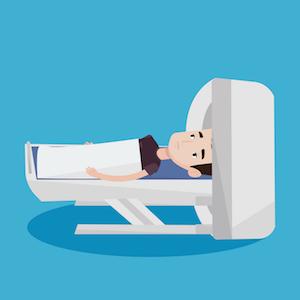Humans, it seems, are susceptible to DSS -- "do something syndrome."
Described by economist John Maynard Keynes as a desire for action over inaction, it partially explains why politicians insist on passing thousands of new laws every single year. It even explains why goalkeepers dive left or right during a soccer penalty kick, when remaining in the middle of the goal is a better decision. Doing something is preferable to not doing something.
That human urge also applies to our healthcare. A sick patient expects the doctor to do something, even if nothing useful can be done. This point has been underscored by new research scheduled to be published in the Journal of Experimental Psychology: Applied, which shows that Americans want to be screened for cancer, even if explicitly told that the cancer screen is worthless.
Led by Dr. Laura Scherer of the University of Missouri, the team conducted a nationally representative survey of 1,745 men and women who were 40 to 70 years old. Half of these participants were told about a new cancer screening test (breast cancer for women, prostate cancer for men) and were warned that "years of research have unquestionably shown that the test does not extend life or reduce the chance of death from [breast/prostate] cancer." Furthermore, they were told the screen could "lead to unnecessary treatment" and "fail to detect dangerous cancers." Despite that, 51% of respondents said they wanted the test.
The other half of the participants were given the same description as above but were also explicitly told of the substantial problems caused by cancer screens, specifically physical (pain, bleeding, hospitalization, or even death), emotional (anxiety or depression), and financial harms. Even then, 34% of respondents wanted the test.
The Trouble with Cancer Screens
Why on earth would so many people choose to go against their own physical, emotional, or financial self-interest? Further analysis by the authors uncovered several reasons. For example, participants often didn't believe that the cancer screen failed to save lives. Others were worried or sought reassurance, while others simply wanted health information. Apparently, even useless -- potentially wrong information -- is better than no information.
Dr. Scherer's findings explain why cancer screening recommendations are so controversial, especially when doctors or medical associations advise delaying or avoiding them outright. Some people were angry when the American Cancer Society recommended that women begin breast cancer screening at age 45 instead of 40. Such a public response isn't rational, but Dr. Scherer's data help explain why it happens.
Source: Laura D. Scherer, K.D. Valentine, Niraj Patel, S. Glenn Baker, Angela Fagerlin. "A Bias for Action in Cancer Screening?" Journal of Experimental Psychology: Applied. Article in press. DOI: 10.1037/xap0000177




